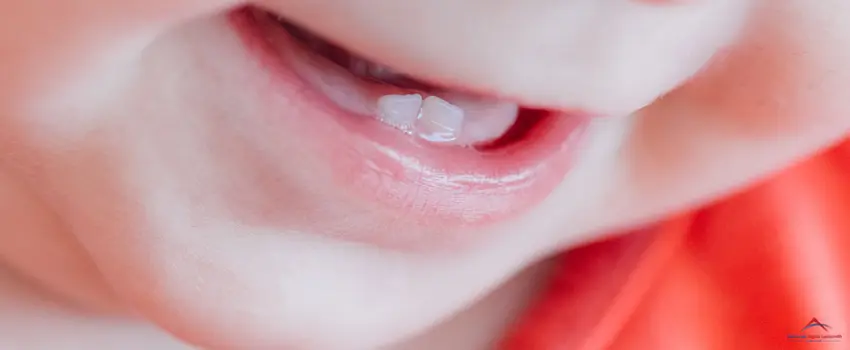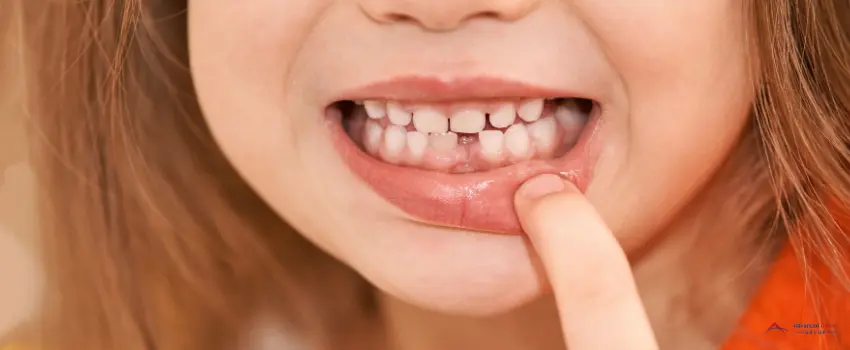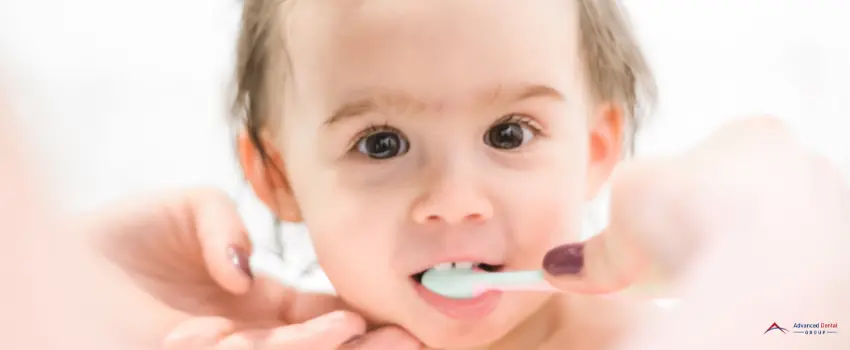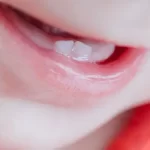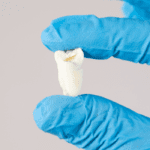As a parent, it’s crucial to understand that baby teeth are just as vital as adult teeth. They may be more vital than you think.
Milk teeth, also known as baby or primary teeth, are important to your child’s current and future oral health. While they’re temporary and will fall out at age six or seven, they need proper care and attention, like adult teeth.
Unfortunately, many parents are unaware of their significance and overlook their care. This may lead to future dental problems for their child.
Let’s learn about the importance of baby teeth, their role in oral health, and how to care for them.
The Importance of Baby Teeth
Babies are born with 20 primary teeth already in their jaws, just waiting to pop out. The first ones to emerge are the lower front teeth at around six months of age.
The rest of your baby’s milk teeth will come in gradually; by the age of three, they will have all of them: ten at the top and ten at the bottom.
Your baby’s milk teeth play essential roles in your child’s growth and development.
They maintain the space for adult teeth.
Baby teeth preserve and set the correct spacing for adult teeth. Losing primary teeth early on will cause the remaining teeth to adjust and move into the space left by the missing tooth, causing the permanent tooth beneath it to lose its place. This can result in crowding and crooked teeth in the future.
They allow for proper chewing and biting.
Having healthy teeth helps kids bite and chew their food correctly, helping them eat nutritious foods their bodies need to grow and develop.
They facilitate speech development.
The importance of baby teeth is also evident in speech development. Teeth play a significant role in producing sounds correctly. Children begin learning language around their first birthday. At this stage, children start combining sounds and expressing themselves using words. Their speech improves as they gain experience with mouth movements and vocalization.
Children also learn where to anchor their sounds in their mouths during this critical time. Healthy teeth increase their chances of avoiding speech difficulties and sound distortion and achieving clear speech.
Baby Teeth: How To Care For Them
According to the Centers for Disease Control and Prevention (CDC), cavities are the most prevalent chronic childhood disease in the United States. Over half of the children six to eight years old have had a cavity in at least one of their teeth.
Your child’s milk teeth are crucial for their growth and development; avoid cavities as much as possible. Here are some tips to help you care for them:
Practice good oral hygiene.
Good oral hygiene is essential from an early age. Wipe your baby’s gums with a clean, damp cloth or gauze after each feeding. Once their first tooth erupts, use a soft-bristled toothbrush with a tiny amount of fluoride toothpaste.
Around their first birthday, you should brush their teeth twice daily for two minutes each. Children will remember to brush their teeth if you incorporate it into their routine. Their bedtime routine could look like this: brush their teeth, read a book, then put them to bed.
When they’re old enough to learn to brush their teeth, brush with them and supervise them. Brushing with them is an excellent way to teach them and set an example.
Don’t let your child sleep with a bottle.
It’s essential to avoid letting your child fall asleep with a bottle to prevent baby bottle tooth decay. The sugars in formula, breast milk, or juices can damage teeth if they stay on teeth. It can also lead to baby bottle decay.
Limit or avoid certain foods and drinks.
Highly-processed fruit juice, soda, and other sweetened drinks are not good for your young ones. According to the American Academy of Pediatrics, you should avoid giving them to infants under 12 months. When they turn one, they can drink them but restrict their intake to four ounces a day. Dilute it with water; give them one part water and one part sweet drink.
You should also limit starchy and sticky foods. They can easily stick to your child’s teeth and nourish the harmful bacteria in your mouth. Raisins, dried fruits, gummies, fruit leathers, and snack bars with molasses or honey are some of these sticky foods known to cause tooth decay. Encourage your child to drink or rinse their mouth with plain water after eating them.
Encourage the whole family to drink water. Your child’s oral health will benefit from drinking tap water with fluoride, which strengthens tooth enamel. Water also helps keep their mouth clean and promotes saliva flow, which flushes away harmful bacteria.
Slowly wean them off the pacifier.
Little ones will become fussy every once in a while. Most parents soothe them by giving them a cup, bottle, or pacifier dipped in honey or sweetener. However, these only expose their teeth to sugar.
It’s better to use a regular pacifier without anything sweet to soothe your child. However, start weaning your child off it when they turn two years old. Letting them use a pacifier this long may affect their teeth’s growth and make orthodontic treatments necessary.
Introduce a cup when they’re one year old.
You can protect your child’s dental health by encouraging and teaching them to drink from a cup. Start switching from bottle or breastfeeding to using a cup with a lid when they turn one. You can provide milk, breast milk, or formula during meals but offer plain water in between.
Consume a healthy diet for strong teeth.
Giving your child a healthy diet goes a long way, not just for their teeth but also for their well-being. A healthy diet provides them with the necessary nutrients to keep their bones and teeth strong and grow healthy.
Go for regular dental checkups.
Sometimes, parents only take their children to the dentist when they’re already experiencing pain. Experts advise parents to schedule an appointment with a dentist once their child’s first teeth appear or when they turn one to ensure their healthy teeth.
Key Takeaway
Milk teeth are essential to your child’s oral health, growth, and development. They preserve space for adult teeth, allow for proper chewing and biting, and facilitate speech development, all necessary for their growth and development.
Help keep your child’s teeth healthy by practicing good oral hygiene, avoiding drinks and foods, and encouraging them to drink water. You should also give them a nutritious diet, slowly introduce cups, and wean them off their pacifiers.
With the right care and attention, you’ll prevent future dental problems for your child.
Give your child the best dental care.
A pediatric dentist is your partner in caring for your child’s oral health. Find one with our help. Advanced Dental Group is affiliated with the best dentists in Avon, CO, who knows how to care for children’s teeth. We’ll connect them to you as soon as possible.
Lay the foundation for your child’s healthy and beautiful smile. Contact us today.
